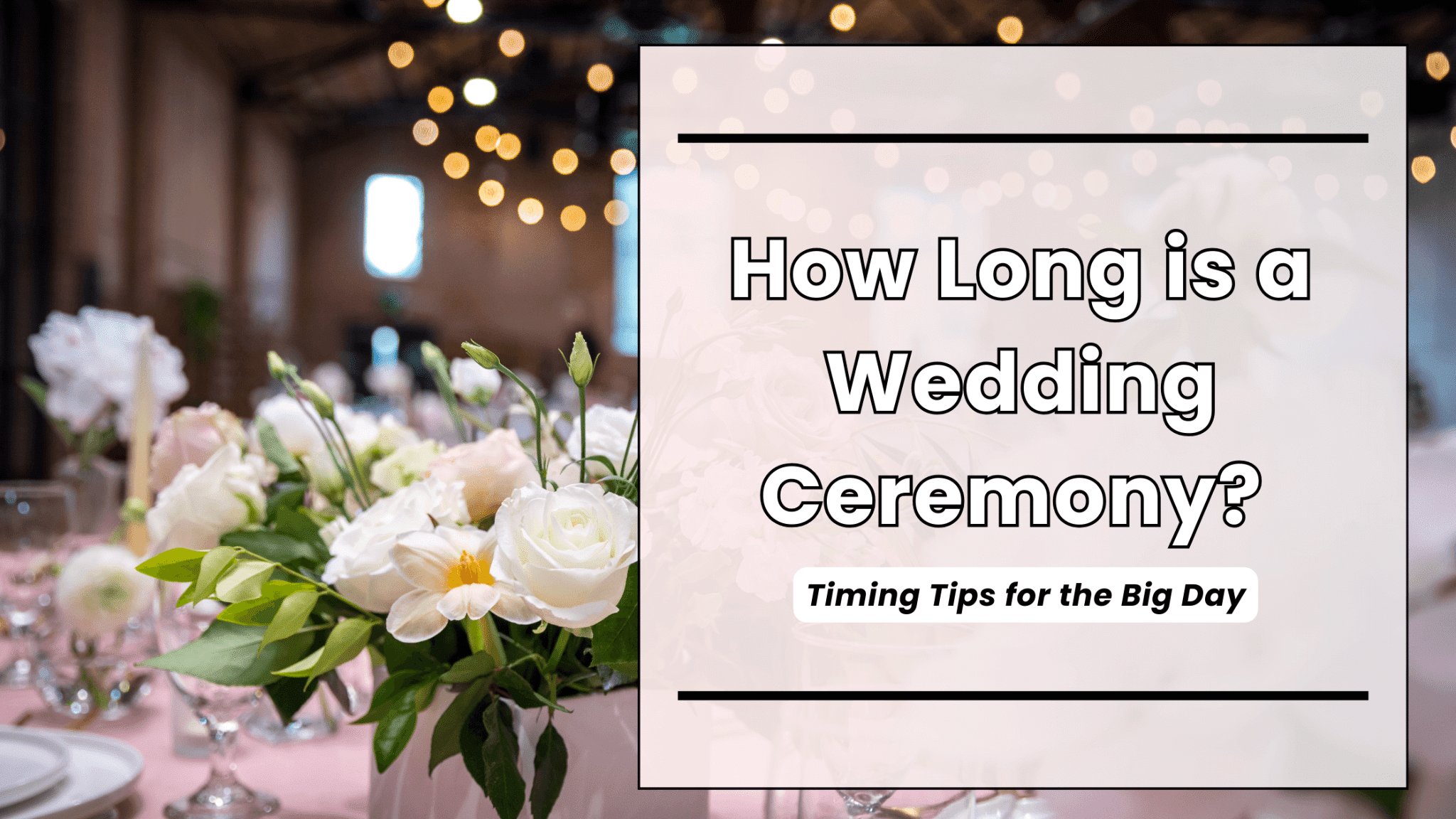Planning a wedding ceremony is a monumental task, with every detail contributing to a once-in-a-lifetime experience. Did you know the average wedding ceremony lasts about 30 minutes, but this can vary widely depending on cultural traditions, format, and personal preferences? As the leading expert in luxury merchandising and promotional products for event planners, JNP Merchandising understands that every second of the big day should reflect your unique style and brand. From personalized keepsakes to premium products delivered 24/7, 365 days a year, we specialize in elevating events to unforgettable occasions.
In this article, we’ll explore everything you need to know about wedding ceremony timing, including factors that influence duration, common ceremony types, and tips for crafting the perfect timeline. For event planners looking to create a seamless experience, discover how JNP Merchandising’s event planning solutions can help you bring every detail to life with unmatched quality and speed.
Planning a wedding ceremony involves much more than choosing a venue and sending out invitations—it’s about orchestrating a seamless event that celebrates love, tradition, and style. Understanding how to manage your timeline is essential for making the day run smoothly, and it starts with the ceremony itself. Here’s everything you need to know about wedding ceremony timing, from typical durations to crafting the perfect schedule.
Understanding the Typical Duration of Wedding Ceremonies
A wedding ceremony typically lasts between 20 to 45 minutes, depending on its format and level of personalization.
- Traditional religious ceremonies often lean toward the longer side, incorporating prayers, readings, and rituals.
- Civil ceremonies and elopements, on the other hand, are typically shorter, focusing on vows and official declarations.
- Keep in mind that cultural traditions or adding custom elements, like unity rituals, can extend this time.
Pro Tip: Ensure your timeline reflects your unique love story. For inspiration, The Knot’s wedding weekend timeline offers valuable insights for planning every detail.
Factors That Influence the Length of a Wedding Ceremony
Many elements shape how long your ceremony will last. These include:
- Ceremony Format: Formal ceremonies with processions or unique rituals take more time than informal ones.
- Religious vs. Secular Weddings: Religious ceremonies often follow structured traditions, while secular ceremonies can be customized for brevity or creativity.
- Cultural Traditions: Traditional ceremonies from different cultures, such as Indian or Jewish weddings, may include multiple layers of rituals.
- Type of Vows: Writing personal vows or incorporating additional speeches can add time but also emotional depth to your ceremony.
Pro Tip: Work with your officiant early in the planning process to estimate the duration of each segment of your ceremony.
Common Types of Wedding Ceremonies and Their Timings
The type of ceremony you choose greatly impacts its timing. Here’s a breakdown:
- Civil Ceremonies: Short and sweet, usually lasting 10–20 minutes.
- Religious Ceremonies: Can last anywhere from 30 minutes to over an hour, depending on the denomination.
- Elopements: Quick and intimate, often wrapped up in 10–15 minutes.
- Destination Weddings: May involve extra time for unique rituals or incorporating cultural elements of the location.
- Outdoor Weddings: Timing often depends on the environment and seasonal considerations. Sunset ceremonies, for example, need precise scheduling for the perfect lighting.
Tips for Planning Your Wedding Ceremony Timeline
Planning a wedding timeline is an art. Here are some practical tips to make it work:
- Start with the Ceremony: Your ceremony sets the tone for the rest of the day.
- Add a Rehearsal: A practice run ensures everyone knows their role and minimizes surprises.
- Buffer Time: Build in 10–15 minutes of flexibility to accommodate unforeseen delays.
- Guest Comfort: Keep ceremonies concise if held outdoors in hot or cold weather.
- Coordinate with Vendors: Work with your event planner and merchandise partners to align ceremony timing with reception elements, like custom favors or branded keepsakes.
For more expert advice on managing your timeline, check out Brides’ reception timeline tips.
What to Include in Your Ceremony for an Optimal Experience
Every ceremony is unique, but some key elements ensure a memorable experience:
- Wedding Program: A detailed program helps guide your guests through the day.
- Music Selection: Choose songs that fit the mood; instrumental pieces are typically 3–5 minutes.
- Readings and Speeches: Allocate 2–5 minutes per reading to keep the flow engaging.
- Unity Rituals: Popular options like sand pouring or candle lighting usually take 5–10 minutes.
Pro Tip: Custom touches like personalized programs or luxury guest favors add sophistication and leave a lasting impression.
The Importance of Buffer Time: Why You Shouldn’t Rush Your Big Day
A successful wedding day requires flexibility. Here’s why buffer time is crucial:
- Avoid Stress: Running late can throw off your entire schedule.
- Accommodate Delays: From traffic to uncooperative weather, unexpected issues happen.
- Enjoy the Moment: Buffer time allows you to pause and savor the day instead of rushing through it.
Pro Tip: Work with experienced partners like JNP Merchandising to ensure every detail—from luxurious keepsakes to last-minute additions—is handled flawlessly. Explore our merchandise for event planners to elevate your wedding’s style and branding.
By carefully planning your ceremony’s timing, you can create a day that’s perfectly paced and stress-free. From understanding the typical duration of ceremonies to managing guest expectations and creating memorable moments, JNP Merchandising is here to support your vision with unparalleled expertise in luxury event products. Let us help make your big day as seamless and stylish as possible!





